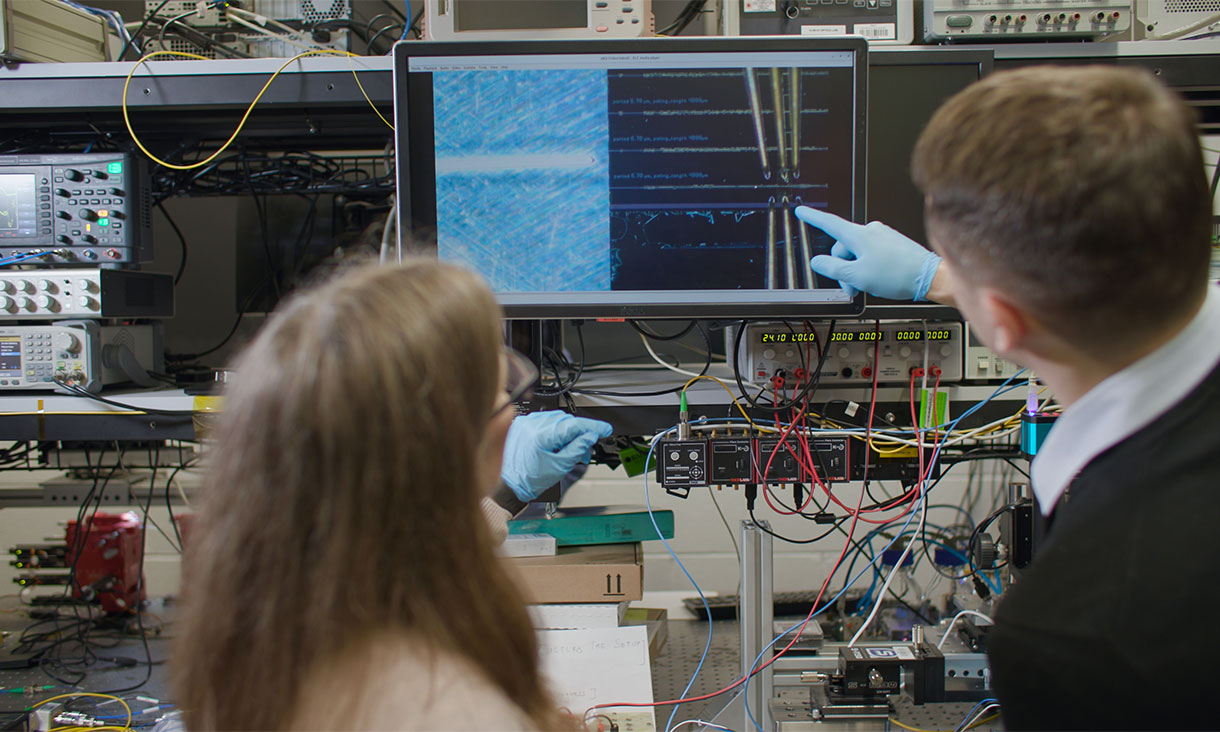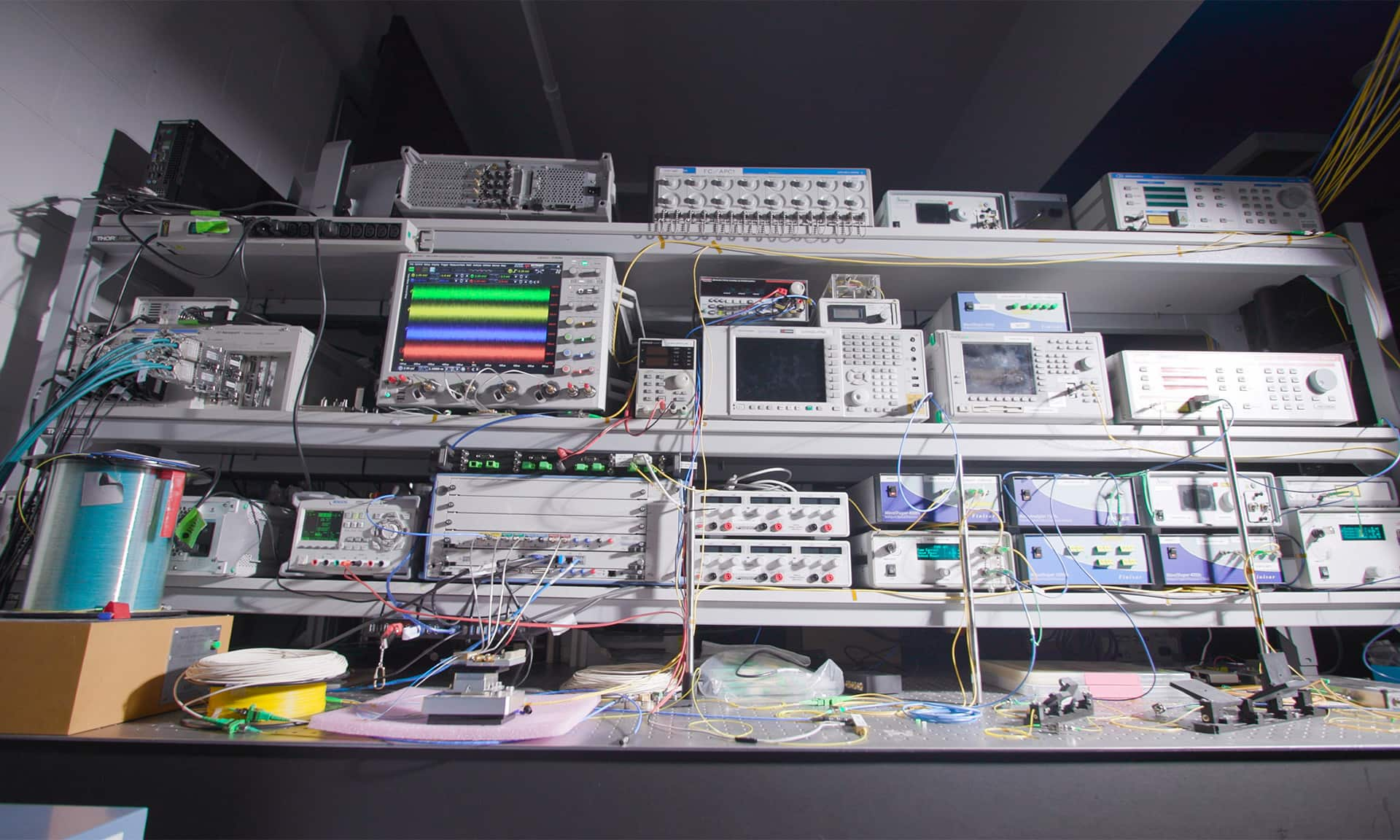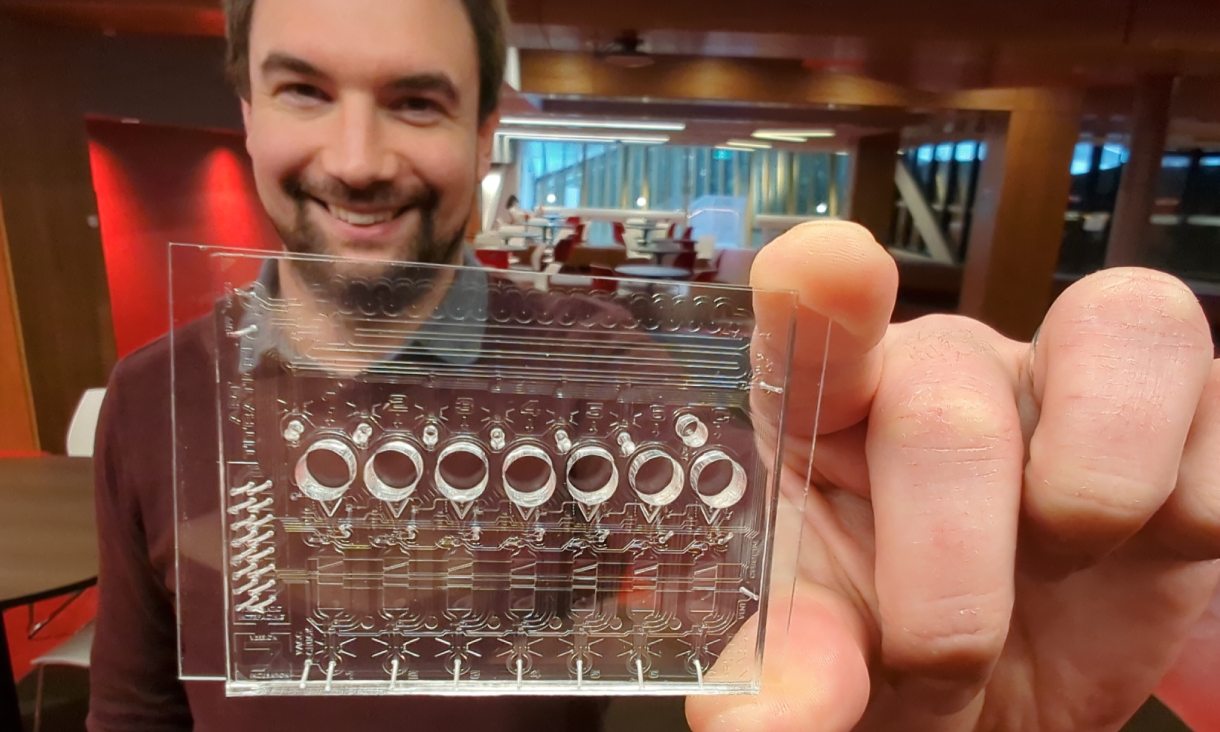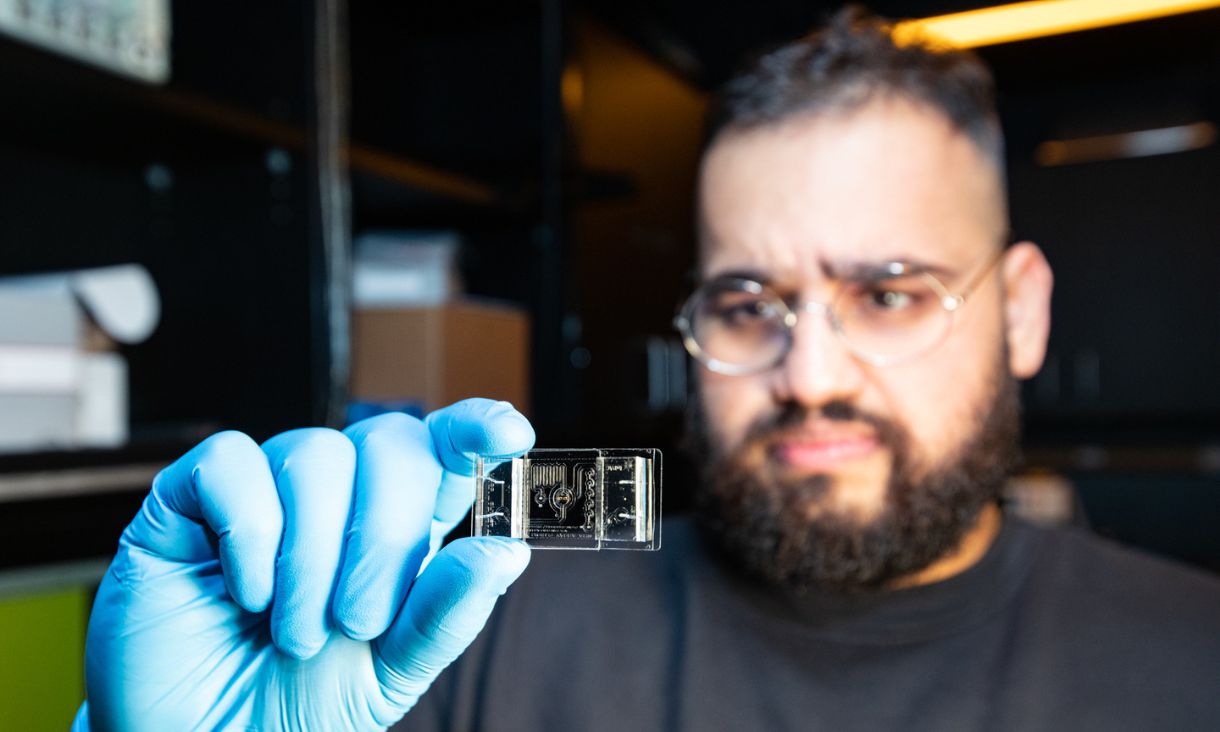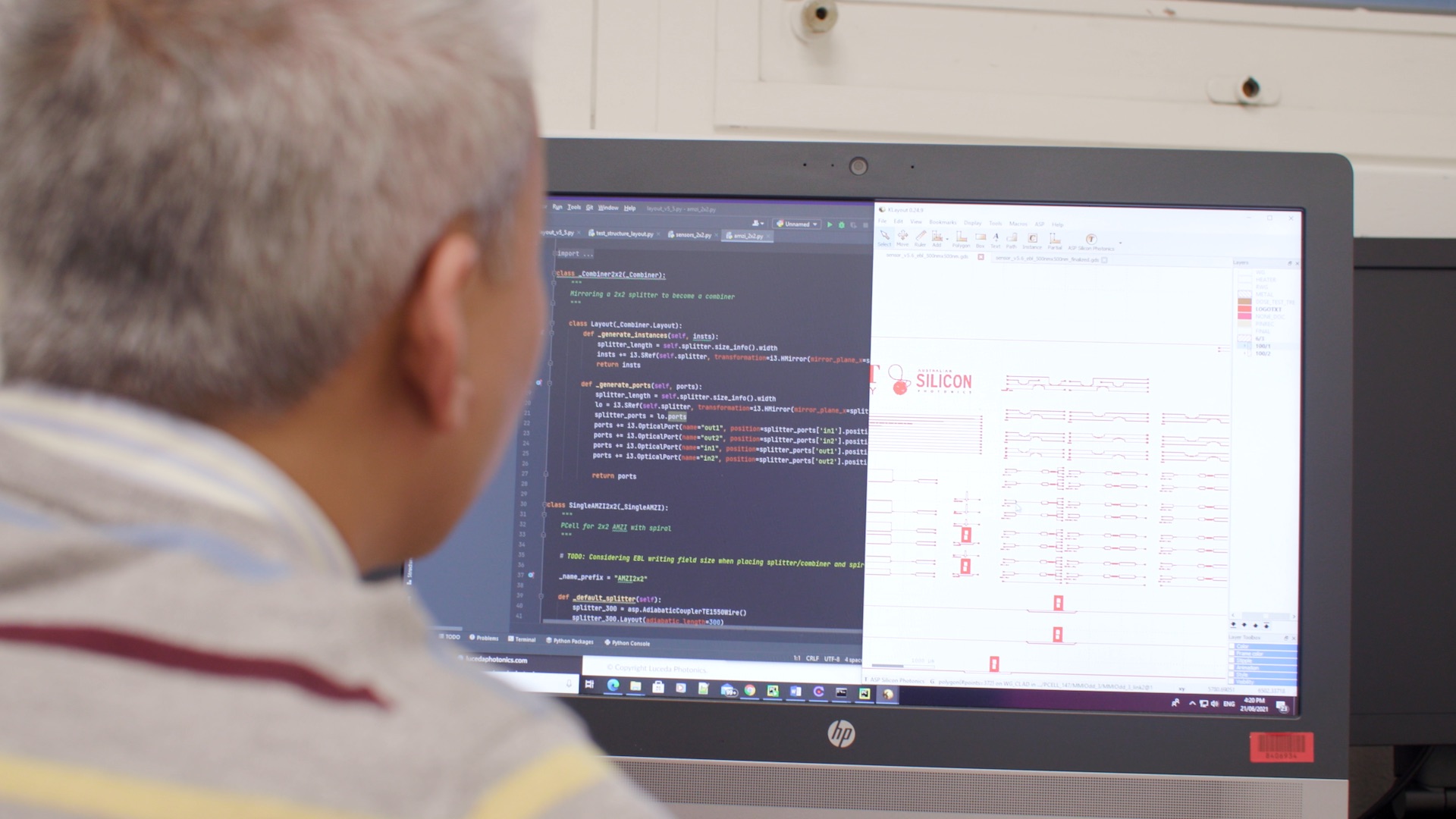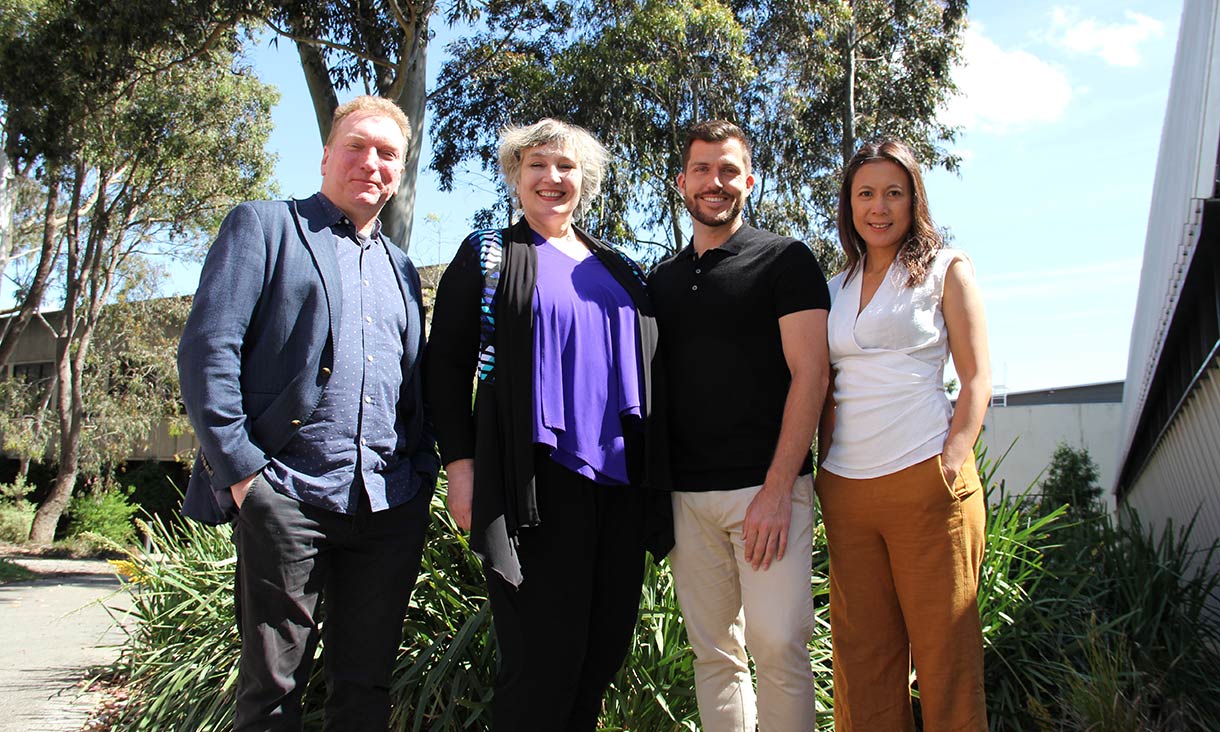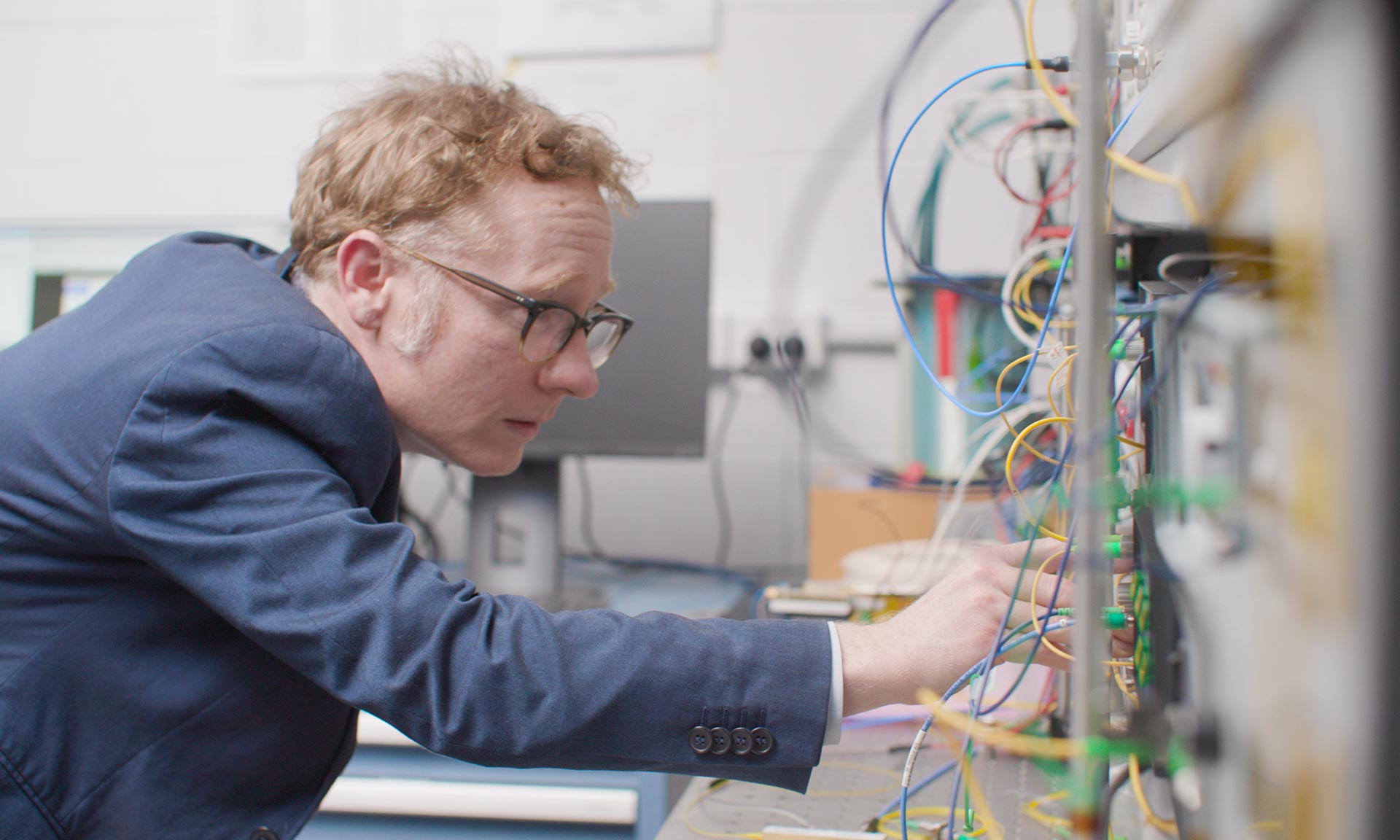Retrofitting internet superhighways with more data ‘lanes’
As global internet data demand grows by around 25% each year, our team at the Integrated Photonics and Applications Centre is developing technologies to get the biggest bang-for-buck out of existing optical fibres to help our infrastructure keep up with demand.
Beyond the constraints of space for more versatile smart devices
To help our smart devices become increasingly smaller, yet more complex, our team at the Integrated Photonics and Applications Centre is exploring how systems can be made to encompass higher dimensions beyond the three we experience as humans.
Intelligent aircraft – monitoring material performance in real time
Strain sensing tools are the unsung heroes helping keep our aircraft safe and in the skies for longer, and our researchers at the Integrated Photonics and Applications Centre are making them even smaller and more robust for real-time in-air feedback.
Helping the world’s fastest internet go where it’s needed most
In 2020, our team broke the world record for the fastest internet speed on a single optical chip, capable of downloading 1,000 HD movies in a single second. Now we're trying to make the chip as accessible as possible.
Observing malaria infections in real-time for better drug treatment
To find a better drug treatment for malaria, a team of researchers at Walter and Eliza Hall Institute of Medical Research and our Integrated Photonics and Applications Centre are using plumbing techniques – but at the microscale – to better understand how infections occur.
Eavesdropping on the conversation between cancer cells to identify how they spread for more effective treatment
A team of biomedical experts and technologists is trying to find the clues behind why cancer cells spread to aid more personalised medicine.
On-board navigation reference systems to explore deeper space
By using the most precise measurement devices on Earth – that measure the movement of atoms – our team is miniaturising on-board reference systems for more precise navigation for autonomous vehicles and deep space exploration.
New supercomputing facility to create photonics solutions faster than ever
With the launch of a dedicated RMIT Amazon Web Services (AWS) Cloud Supercomputing (RACE) Hub, RMIT researchers will be able to more easily process huge volumes of data in less time.
Creating a device for early detection of ovarian cancer
We're tackling the world’s most lethal gynaecological cancer, to diagnose the disease even before symptoms arise.
Keeping up with the world’s need for ever-faster internet
In collaboration with Lanzhou University in China, we created a commercially available chip capable of accurate and rapid data transfer to keep up with the world’s demand for faster internet bandwidth and speed.
Creating the world’s fastest internet on a single optical chip
COVID-19 placed immense pressure on the world’s data communications infrastructure as more people worked from home, demonstrating the need for faster internet speeds.
Detecting heart attacks before they happen with a tiny sensor
Heart attacks are the leading cause of death worldwide, with cardiovascular disease leading to more than 17.8 million deaths each year.


